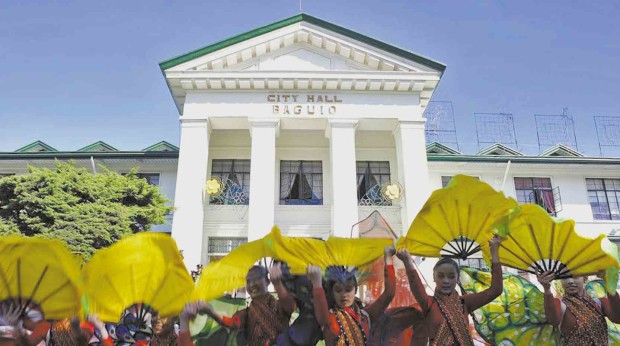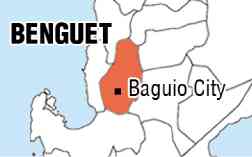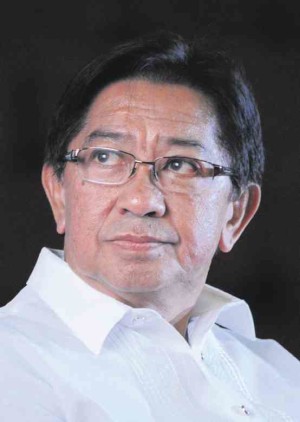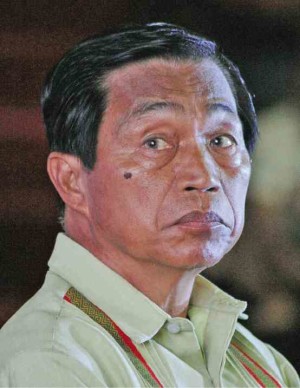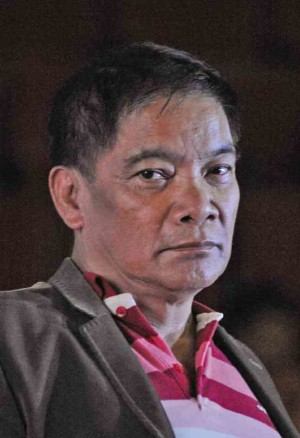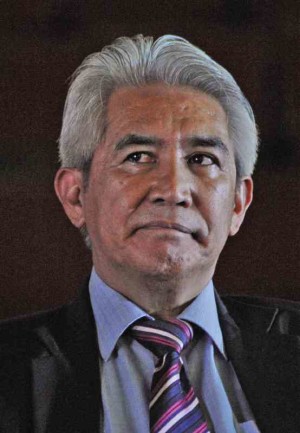Election 2016: Agenda of the Baguio City mayor
STARTING today, the INQUIRER is coming out with a series on pressing people’s concerns that should be high on the agenda of candidates for representative, governor or mayor in the May 9 elections. The series should help voters in the provinces choose their leaders wisely. In line with our “ThINQ. Vote.” advocacy, we have asked candidates in certain provinces, cities and congressional districts to outline their concrete plans of action in dealing with specific issues in their areas.
(Editors’ Note: INQUIRER.net has since substituted the abbreviated answers of the candidates, which were published in the paper, with the candidates’ full responses, as originally sent to the Philippine Daily Inquirer.)
Profile: Baguio City
Designed and established as the summer capital by the American colonial government in 1909, the mountain city remains one of Luzon’s primary tourist destinations.
Article continues after this advertisementArea: 57.5 square kilometers
Article continues after this advertisementVoting Population: 147,794
Total Population: 318,676 (as of March 2010)
Population Density: 5,542.1/sq. km. (as of May 2010)
Annual Per Capita Poverty Threshold: P15,820 (as of 2009)
Number of Villages: 128
Classification: Highly Urbanized City
CONCERN 1: ENVIRONMENT
REGREENING. Reforestation is a key Philippine commitment to mitigate the impact of climate change. But even before weather changes have drawn attention back to the importance of forests, regreening Baguio has been a concern for city residents whose daily water supply is rationed.
According to the government, Baguio’s remaining forest cover spans 1,446.81 hectares (roughly 20 percent of the mountain city’s 57.5-square kilometer territory), but many of these trees are within private properties.
Reforestation efforts also depend on each administration’s programs and fund allocations. Reforestation should be a sustained and regulated program, with measured targets and accountable officials in a mountain community that calls itself the City of Pines.
CONCERN 2: ECONOMY
OVERDEVELOPMENT. Urban decay was a phenomenon that had been debated by the city government as far back as the 1990s. But despite conscious efforts to stave it off, the latest Comprehensive Land Use Plan (CLUP) acknowledges the “appalling state of congestion at the central business district and its immediate environs.”
The city that started out with 841 inhabitants in 1904 grew to a daytime population of 700,000 (including workers from neighboring towns and transient university students) and a night time population of 318,676 in 2010, according to a recent University of the Philippines paper. The Population Commission estimates that 5,000 people are added annually to the city’s population.
There is a need to determine whether the income Baguio generates from massive development projects can offset the dwindling resources enjoyed by its residents.
CONCERN 3: HEALTH
WALKING INSTEAD OF DRIVING. Baguio urban planners have not given up on a proposal to free downtown Session Road from vehicles and make it a purely pedestrian and mountain biking haven.
The proposal has not been getting the push because each time Session Road is closed to traffic, vehicular gridlocks occur on roads encircling the downtown area.
But making downtown Session a walking space is still a viable goal should the government consider new proposals to reallocate the routes of public utility vehicles in the villages and build a new mass transport system like a light train that ferries people to and from the business center.
The city only has 111.887 kilometers of arterial and secondary roads, and 369 kilometers of city and village roads. Building new roads in a congested city is no longer an option.
Environment
Efforts at cleaning the environment are measurable. [Improving] the existing forest cover by 30 percent is doable by encouraging residential, group and community efforts to plant trees and other vegetative cover in their areas.
Air quality could be improved by 30 percent by ensuring that every vehicle pass smoke emission standards and making sure no one burns trash.
Waterways quality could be improved by 30 percent through community and household clearing efforts. No additional budgets are needed, but execution and implementation could be achieved through cooperation. This is doable in the first year.
Economy
Controlled development is what we need. We must ensure strict compliance with the environmental impact requirements for both minor and major earth-moving projects in Baguio. Social scoping (a way to determine the effects a project would have on its environment and its neighborhood) must become fundamental in any proposed development. This process sets the limits or increases the cost for environmental mitigation that would be required for each development project, putting the interests of the community in focus.
Health
Traffic due to vehicular congestion is a reality. The wise use of existing roads is what counts. A study of the supply and demand of commuters for transport has been conducted and merely needs improvement. We can ensure the smooth flow of traffic as we try to clean the air of smoke emissions for now. But carbon dioxide emissions from these vehicles must be dealt with eventually. It can be done.
Environment
The regreening of our city is part of our priority programs that we will continue to do. Since we resumed office as the “city’s janitor” in 2010, we were able to work out the production of 124,611 assorted seedlings and the planting of 89,217 of these in various parts of the city that contributed to the sustained greenery of our greenbelt areas. This is also in compliance with the government’s national greening program (NGP).
Economy
The Metro Baguio development initiative, also known as BLISTT (Baguio-La Trinidad-Itogon-Sablan-Tuba-Tublay), is a major solution to overdevelopment. This is the reason I have been a strong and consistent advocate of BLISTT development. Our administration helped complete the circumferential roads, which connect Baguio to the neighboring towns of Benguet. The roads would bring major economic development to the other members of BLISTT. This helps decongest the city.
Health
We had always been an advocate of “walking instead of driving” because we were used to it since we were raised in one of the remotest places in the country. It is an integral part of our program. This is the reason we have worked out the completion of the circumferential roads and continue to develop city and barangay roads to serve as alternate routes of vehicles to decongest our main roads and slowly convert them into walking areas.
Environment
We stick on our plan for a program of “ONE HOUSE, ONE TREE,” no exemptions. Everybody should participate. Every house should have at least one tree not necissarily pine tree but any trees of there choice. It should be maintained and nourished until it is fully grown. We will give incentives to those who already take care of the trees like discount in utility bills. The next mayor should have continuity of the project. The Department of Environment and Natural Resources will provide the trees.
In order to maintain forestation in the city, we first have to determine the cause of deterioration: First, there are no controls for selling preserved forest area to big time businessmen and developers, and Secondly, we have no control over visitors who plan to settle here in Baguio as well as foreigners.
As result of these [absence of regulations], trees are cut in order to give way to buildings and houses on what used to be forest lands. Since hundreds of trees are cut, water supply is no longer abundant to serve the demand of the increasing number of residents due to migration. Water supply drops while population rises.
The solution: since Baguio population has already reached its peak capacity, the government should no longer allow lands to be sold to non-Baguio residents and foreigners in order to preserve the forests. Baguio people can enjoy the benefits from their inherited native land which was bestowed by their great grand relatives, and they can be proud of being true Baguio people. Also, water supply can be now manageable.
Economy
To prevent urban decay, we should stop once and for [the sprouting of] illegal settlers. They distort the environment and contribute to massive cutting of trees. We should be strict in issuing building permits, and require [homeowners and developers] to have a good program for tree planting and proper waste management. We should also encourage dormitories to teach their boarders about proper waste disposal.
It is the current governing authorities who have initiated the privatization of public lands that are supposed to be for the free enjoyment of Baguio people. For example, if the Botanical Garden is privatized, private owners can do anything to develop that piece of land. There will be massive cutting of trees to give way to recreational facilities.
With regards of the development of the main thoroughfares of the city such as Session Road, Mabini Street, Bonifacio Road, Harrison Road, Abanao Street, [their skyline] should also be controlled, in order to create a look that defines old Baguio City which was “nalinis, natalna ken narang-ay (clean, orderly and beautiful).”
Health
We should also stick to reducing air pollution by regulating traffic. Our solution is smarter, doable and simple. Between 6 a.m. to 12 noon, only vehicles with plates ending in even numbers should use the road. Between 1 p.m. to 7 p.m., only vehicles with plates ending in odd numbers should use the road. No exemptions. We should sacrifice half of the day by going out to town carless. [This translates] instantly [to] less pollution, less traffic, [and savings of] millions of pesos everyday and everybody will be encouraged to walk. Very simple but everyone can do it.
Baguio City is indeed a walking haven. You can reach your destination within the business district or main thoroughfairs by walking. But again, with so much pollution brought by overdevelopment (too many buildings and condominiums), the uncontrolled influx of migrants, the uncontrolled increase of vehicles and undisciplined residents (who do not manage their waste), people opt to commute to avoid inhaling air pollution.
Yes, it is a fact that we cannot control “Climate Change” but we can still [do things that have] less impact on the environment, and not to aggravate [the situation].
Private vehicles should not be allowed to drive towards the central business district areas just for parking purposes. Public Utility Jeepneys should not be routed towards the main business areas to unload their passengers, to encourage residents to walk to their destinations. During holidays, visitors should be briefed and told that they are not allowed to use their vehicles inside Baguio. They can commute around the city instead.
Environment
Our program is in pursuit of BLISTT (or the economic cooperation between Baguio and the Benguet towns of La Trinidad, Itogon, Sablan, Tuba and Tublay). We should impose a moratorium on subdivisions in Baguio and encourage tenement-type structures [to rise] at the surrounding municipalities for low cost housing. We will change the landscape of Baguio [by prioritizing] more plants than buildings or houses. We can have tall and short trees, green and fruit bearing trees, to add color [to the landscape]. {It would include] flowers and edible vegetables. This should be the theme of Panagbenga (the annual Baguio Flower Festival staged every February) in cooperation with the LISTT areas.
We should encourage informal settlers to be relocated to the low-cost tenements and build high rise buildings than can accommodate more families.
Schools near the central business district must likewise be relocated to ease [downtown Baguio] from traffic. Like driftwoods, we take care and enhance the heritage sites [by turning them into] tourist destinations, including the city market. That is [the way to] landscape our city from a squatter city to an organized city.
The rivers will have a chance to be alive again if the trees and plants are maintained around it. We should put methane gas collection chambers at the source of the river pollution, like the market and the slaughterhouse so that pollutants are filtered before water is released to the Balili River (which flows from Baguio to La Trinidad town).
Economy
We need to involve investors in planning for Baguio so that lands are made cheap and available, allowing businessmen to sell cheap apartments or offer them under rent-to-own arrangements. This will spur genuine development and economy.
Health
Wider and safer roads should be built towards [neighboring Benguet towns that make up BLISTT]. This will enable people to walk without much pollution. A study should be made for the construction of a moveable walkway along the Balili River, which flows from Baguio City to La Trinidad town in Benguet.
